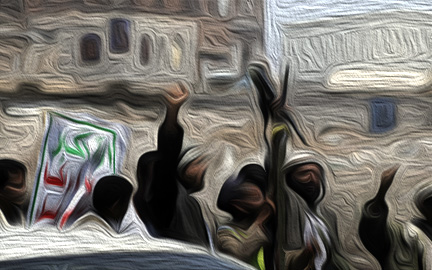
by Helen Lackner , Open Democracy, 6 April 2015
The war which has now started is what many of us feared for so long and hoped, against all rational thinking, would be avoided. And this time, let us not fool ourselves with misguided optimism, this will be long and as awful as any war can be. While political and even military internal struggles are hardly a novelty in Yemen, the new element is that the conflict has now added a major layer of international ‘proxy’ features which will only worsen the situation, making it reminiscent of the Lebanese civil war in the 1970s-80s.
Why is this the outcome of the 2011 revolutionary uprisings seeking economic development, justice and dignity, the end of kleptocracy and other good things? Who is to blame? Could it have been avoided? My earlier articles provide some of the background to understanding the current situation, and while many of these factors remain relevant today, and will remain so in the foreseeable future, the outbreak of full-scale war including foreign parties is an entirely unprecedented phenomenon which will affect Yemen’s people and the region for years to come.
While Saudi Arabian involvement in Yemeni affairs is a longstanding fact, going back to the Imamate period and the earliest days of the creation of the Kingdom, this is the first time SA has taken the initiative to launch a major international military attack, albeit by air.
International media talk constantly of Huthi forces, but in reality the main military force in Yemen is now that of ex-president Saleh who, wherever he is, is doing what he promised: destroying as much as he possibly can.
It may not be particularly useful to non-specialists of Yemen to go into the details of the sequence of events since the Huthi coup of 6 February. But a rapid recall of the main events is important. After a month under house arrest in Sana’a, the legitimate internationally recognised president escaped to Aden where he attempted to establish a temporary government. Although the southern separatists, one of whose main strongholds is Aden, gave him at least tacit support, Huthis and former president Saleh military forces increased their attacks southwards and rapidly reached Aden itself. The ‘popular committees’, ie local militias supporting him, are no match for Huthi/Saleh well trained and equipped forces. Since participating in the Arab Summit at Sharm el Sheikh, Hadi and his ministers are in Riyadh which has become their operational base.
For the rest of this article, click here.